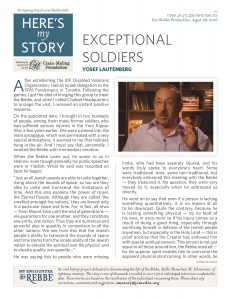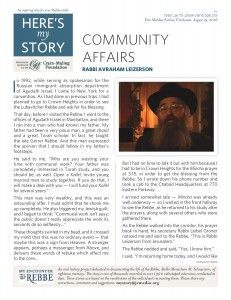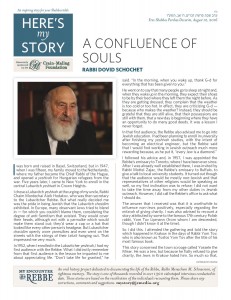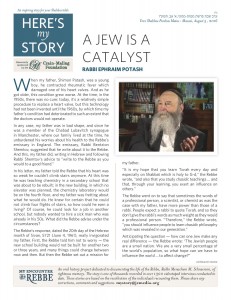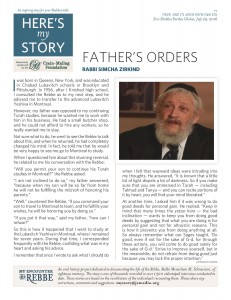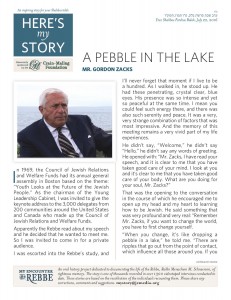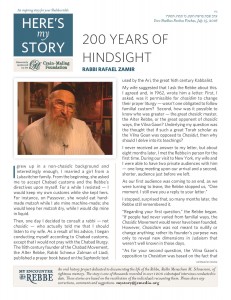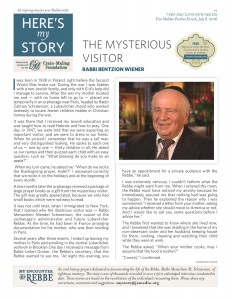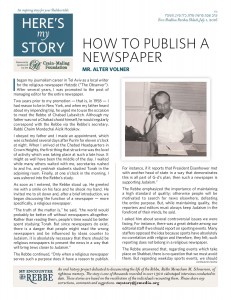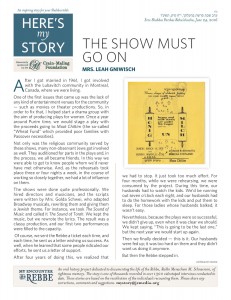Exceptional Soldiers
After establishing the IDF Disabled Veterans Organization, I led an Israeli delegation to the 1976 Paralympics in Toronto. Following the games, I got the idea of bringing this group to meet the Rebbe, and when I called Chabad Headquarters to arrange the visit, I received an instant positive response.
On the appointed date, I brought in two busloads of people, among them many former soldiers who had suffered serious injuries in the Yom Kippur War a few years earlier. We were ushered into the main synagogue, which was permeated with a very special atmosphere; it seemed to me that holiness hung in the air. And I must say that, personally, I awaited the Rebbe with tremendous emotion.
When the Rebbe came out, he spoke to us in Hebrew, even though generally his public speeches were in Yiddish. What he said was recorded on tape; he began:
“Just as all Jewish people are able to unite together, rising above the bounds of space, so too are they able to unite and transcend the limitations of time. And this also explains the power of Israel, the Eternal People. Although they are called ‘the smallest amongst the nations,’ they are fewest only in a particular place and time. For, in fact, all Jews – from Mount Sinai until the end of generations – are guarantors for one another, and they constitute one entity, one nation. Thus they are numerous and powerful also in quantity in comparison to all the other nations. We see from this that the Jewish people’s ability to transcend the bounds of space and time stems from the innate ability of the Jewish nation to elevate the spiritual over the physical, and to elevate quality over quantity…”
He was saying this to people who were missing limbs, who had been severely injured, and his words truly spoke to everyone’s heart. Some were traditional Jews, some non-traditional, but everybody embraced this meeting with the Rebbe – they treasured it. No question, they were very moved by it, especially when he addressed us directly.
He went on to say that even if a person is lacking something quantitatively, it is no reason at all to be downcast. Quite the contrary, because he is lacking something physical – by no fault of his own, or even more so if his injury comes as a result of doing a good thing, especially through sacrificing himself in defense of the Jewish people anywhere, but especially in the Holy Land – this is proof positive that the Creator has endowed him with special spiritual powers. This person is not just equal to all those around him, the Rebbe insisted – for his superior spirit enables him to overcome the apparent physical shortcoming. In other words, he is able to succeed above and beyond the ordinary person.
And then he stunned us with this statement: (more…)


